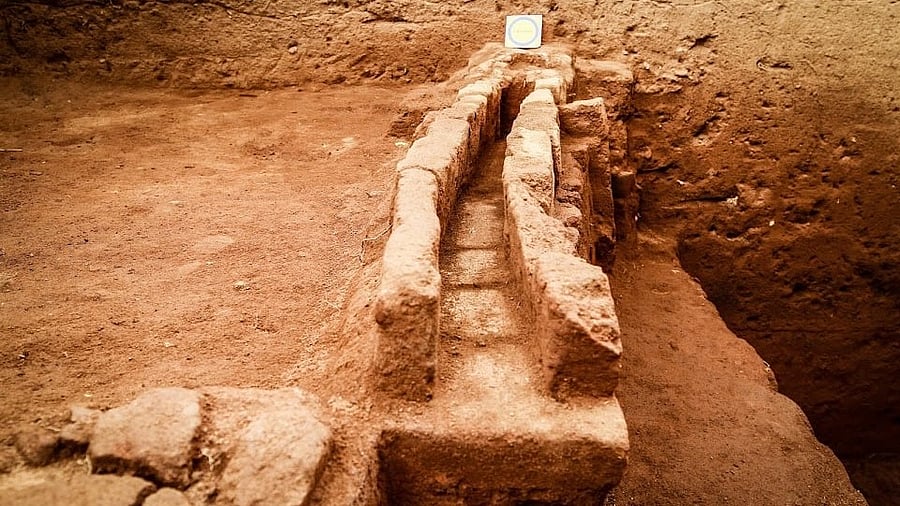
Representative image of excavations in Tamil Nadu.
Photo credit: TNSDA
Chennai: Continuing with its efforts to establish the antiquity of Tamil culture, the Tamil Nadu government on Friday announced the launch of archaeological excavations in seven new locations this year even as the digging at the Sangam-era site of Keeladi will enter its 11th phase.
Presenting the 2025-2026 Budget, Finance Minister Thangam Thennarasu, who also holds additional charge of archaeology, allotted a record Rs 7 crore for carrying out excavations and scientific research, including dating of artefacts, Metallurgical and DNA analyses, and Optically Stimulated Luminescence (OSL) dating, in the upcoming financial year.
The DMK dispensation has been generous in its spending on archaeology ever since Chief Minister M K Stalin asserted that his government will scientifically prove that India’s history should be rewritten from the Tamil landscape.
Focussing on preserving the past traditions, three museums -- Noyyal in Erode on Kodumanal excavations, Naavaai in Ramanathapuram to highlight the maritime trade excellence of the famed Pandya kingdom, and one in Chennai to showcase bronze statues -- will be set up at a cost of Rs 22 crore, Rs 21 crore, and Rs 40 crore respectively.
An ‘Indus Valley Cultural Gallery’ will be established at the Egmore Museum in Chennai to commemorate the centenary of the discovery of the Indus Valley Civilization, while Tamil Cultural Museums will be established in Mamallapuram and Tiruvannamalai to showcase the “uniqueness of antiquity and continuity of Tamil heritage” to tourists.
These will be in addition to sprawling museums being constructed in Gangaikondacholapuram in Ariyalur district and in Tirunelveli to showcase the rich history of the famed Chola dynasty and the Porunai civilization respectively.
Excavations in Keeladi, a nondescript village near Madurai, which is likely to be 2,600 years old based on AMS dating of artefacts found in 2018, will enter their 11th phase this year. Keeladi is a notable archaeological site that has pushed the literature-rich Sangam Era behind by 300 years.
The new locations where excavations will be held this year are Vellalore (Coimbatore), Thelunganur (Salem), Adichanur (Kallakurichi), Manikkollai (Cuddalore), Nagapattinam, Pattanamarudur (Thoothukudi), and
Karivalamvanthanallur (Tenkasi). Thenarasu also said the journey in search of the cultural identities of ancient Tamils has been expanded to Palur (Odisha), Vengi (Andhra Pradesh) and Maski (Karnataka).
The government will also carry out a series of deep-sea archaeological excavations along the Tamil Nadu coast with the first phase covering.
Kaveripoompattinam to Nagapattinam, the minister added.
Thelunganur is an important Iron Age site in Tamil Nadu which has been dated to 1500 BCE and another round of excavation is significant since it comes close on the heels of the findings that the usage of iron was widespread in the state and date back to at least 5,300 years ago.
Vellalore, 15 km from Coimbatore, holds significant archaeological importance as previous excavations have thrown enough evidence of the existence of a gemstone and bead making industry besides having enjoyed Roman trade links.
Pattanamarudur has been chosen for excavations due to its possible link to Vembakkottai, where digging has been ongoing for the past three years.